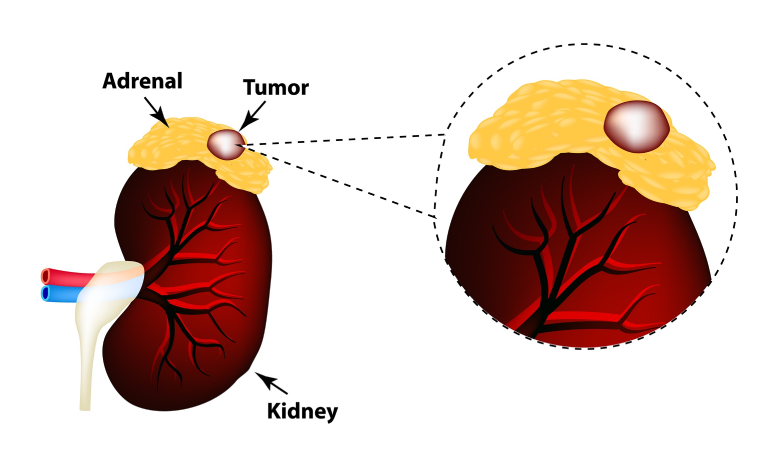Best Doctor for Adrenal Cancer Treatment in Vashi, Navi Mumbai
Adrenal Cancer : Types, Symptoms, Diagnosis & Treatment

Dr. Varun Agarwal provides a personalized, effective treatment and Robotic Surgery for Adrenal Cancer in Vashi, Navi Mumbai.
What is Adrenal Cancer ?
Adrenal cancer is a rare cancer that begins in one or both of the small, triangular glands (adrenal glands) located on top of your kidneys. Adrenal glands produce hormones that give instructions to virtually every organ and tissue in your body.
Adrenal cancer, also called adrenocortical cancer, can occur at any age. But it's most likely to affect children younger than 5 and adults in their 40s and 50s.
When adrenal cancer is found early, there is a chance for cure. But if the cancer has spread to areas beyond the adrenal glands, cure becomes less likely. Treatment can be used to delay progression or recurrence.
Symptoms
Signs and symptoms of adrenal cancer include:
-
Weight gain. -
Muscle weakness. -
Pink or purple stretch marks on the skin. -
Hormone changes in women that might cause excess facial hair, hair loss on the head and irregular periods. -
Hormone changes in men that might cause enlarged breast tissue and shrinking testicles. -
Nausea. -
Vomiting. -
Abdominal bloating. -
Back pain. -
Fever. -
Loss of appetite.
Risk factors
Adrenal cancer happens more often in people with inherited syndromes that increase the risk of certain cancers. These inherited syndromes include:
- Beckwith-Wiedemann syndrome.
- Carney complex.
- Li-Fraumeni syndrome.
- Lynch syndrome.
- Multiple endocrine neoplasia, type 1 (MEN 1).
Diagnosis:
-
Imaging tests like CT or MRI scans. -
Hormone level assessments to identify functional tumors.
Treatment Options:
-
Surgery to remove the tumor (adrenalectomy). -
Chemotherapy for advanced cases. -
Targeted therapy to address specific molecular characteristics. -
Hormone replacement therapy if adrenal function is compromised.
Meet our Uro-Oncologist and Robotic Surgeon






